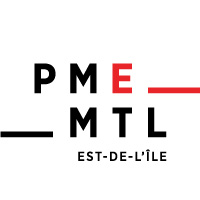When opportunity knocks
At the age when some people are thinking of retirement, others start their own business. That’s what Faraj Nakhleh did, when he bought out an existing company at age… 62! Read about a man who risked his life savings to revamp his acquisition.
In 2008, Faraj Nakhleh embarked on a new career, when he took over TrakMaps, a company that designs maps for the outdoors.
An engineer by training, Nakhleh came to Canada from Palestine almost 50 years ago. He already had a solid business background from working in sales and then management for various high-tech firms before joining Raymond Chabot Grant Thornton, where he specialized in business acquisitions and sales for 9 years.
Following his own advice
After being involved in other people’s acquisitions, he felt ready to manage his own company. “I wanted to have my own business and to mould it for myself,” he explains. “TrakMaps came up, and I decided to buy it out.”
And he didn’t choose the company because of any particular interest in topography or the great outdoors, but rather because he had spotted a way of transforming the business to make it more profitable.
“You have to fully understand what a company does before buying it out. That’s why I wanted something in advanced technology or computer science, because I know those fields well. I would never have purchased a lumber or construction company.”
Introducing technological innovations
At the time, TrakMaps was based in Saint-Donat, where it just printed its topographic maps and sold them to individuals and companies venturing away from big cities.
Nakhleh decided to usher the firm into the digital age. “In short, I changed everything,” he explains.

First of all, he didn’t want to stay limited to printed maps. TrakMaps became a technological firm, adding a line of digitized maps that can be integrated with geolocation systems.
“Developing geolocation maps is costly, but the margins are high, too,” he says. “We had to reach agreements with different GPS manufacturers. It took us a year, but we finally found them.”
He didn’t give up the printing side of the business, though. TrakMaps has also focused on improving the quality of the paper for its maps. “We spent six months finding a tough, tear-resistant synthetic paper,” he says.
Finding resources
All in all, Nakhleh invested over $1 million of his own funds, in addition to drawing a low salary so as to guarantee a successful buyout of TrakMaps.
“When you’re investing your own money, you’re more careful about your decisions,” says the small business owner.
The transformation was completed with a move to Dorval, to make it easier to attract skilled workers, and the addition of a transactional website.
The business now has nine employees and sells topographical and marine maps, as well as maps of snowmobile trails, online and through a network of retailers.
Nakhleh is currently thinking of passing the torch, and has some perfect candidates in mind: three of his children are already working for TrakMaps. At age 71, he can now look back and say “mission accomplished.”
--
TrakMaps is supported by PME MTL Ouest-de-l'Île.
